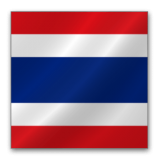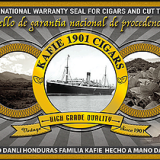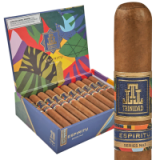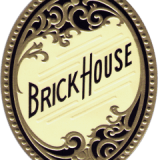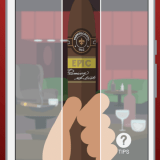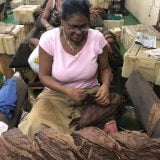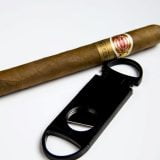Cigars have been around for centuries, and they come in a variety of shapes, sizes and flavours. While Cuban cigars are the most widely known type of cigar, there is also a wide selection of non-Cuban cigars available to those who want to explore different tastes.
Contents:
Non-Cuban cigars originate from many different countries such as Nicaragua, Honduras, Dominican Republic and even Mexico. These cigars typically feature unique blends made with tobaccos that are not grown in Cuba or influenced by Cuban tobacco growing methods. As a result, each country has its own distinct flavor profile that is uniquely their own.
These non-Cuban cigars also differ from their Cuban counterparts in terms of construction and rolling technique. In general, these cigars are usually smaller than traditional Cuban ones due to the limited availability of certain types of tobacco used in their production process. They tend to be rolled tighter than the traditional Cubans which leads to an overall smoother draw when smoking them.
The wrapper leaf used on these non-Cuban sticks can vary greatly depending on where it was grown and harvested from; some regions produce thicker leaves while others will use thinner varieties for added strength or flavor complexity. This means that each smoke you enjoy can offer something completely new and exciting every time.
Another major difference between these two styles lies in how they’re aged before being sold: Non-Cubans tend to be aged much longer than Cubans since the former don’t need additional aging once rolled into sticks like their more well known counterpart does after rolling but before packaging. This extended aging period gives them time to develop more intense flavors which make them perfect for aficionados looking for something a bit stronger than your average smoke.
Exploring the World of Cigars
Exploring the world of cigars can be an exciting and rewarding journey. With a wide range of flavors, aromas, shapes, sizes, and strengths available, cigar aficionados have plenty to choose from when it comes to finding their perfect smoke. Non-Cuban cigars offer an even more varied array of options. From Nicaragua to Honduras to the Dominican Republic and beyond, these premium smokes are becoming increasingly popular among cigar connoisseurs around the globe.
The first step in exploring non-Cuban cigars is learning about their origins and production methods. Many countries produce different types of tobacco that contribute distinct notes to a cigar’s flavor profile – ranging from sweet and spicy Nicaraguan tobaccos to earthy Honduran fillers or mellow Dominican wrappers. By understanding how each country’s tobacco contributes its own unique character to a blend, smokers can better identify which style will best suit their taste preferences before making a purchase.
In addition to differences in origin and production methodologies, non-Cuban cigars also vary widely in terms of price point as well as body strength – from milder milds all the way up to full-bodied smokes with some powerful kick behind them. Ultimately this allows smokers great flexibility when deciding what kind of experience they want out of each individual smoke session – whether it be something smooth for those lazy afternoons or something more robust for special occasions like dinner parties or celebrations with friends.
The Benefits of Non-Cuban Cigars
Non-Cuban cigars have a lot of advantages that make them stand out from the rest. For starters, they are often cheaper than their Cuban counterparts due to lower production costs and fewer restrictions on importation. This means smokers can enjoy great quality cigars without breaking the bank. Non-Cuban cigars provide an opportunity to sample a wide variety of different flavors, as each country has its own unique blend of tobaccos used in cigar making.
Smokers who choose to indulge in non-Cuban cigars will find that there is no shortage of options available when it comes to shapes and sizes. From classic robusto’s and churchill’s to petit coronas or even lonsdale’s – whatever your preference may be, you are sure to find something that suits your tastes perfectly. Moreover, these cigars come in various strengths as well; ranging from mild all the way up to full bodied blends for those who want more intense flavor profiles.
Many non-Cuban cigar manufacturers use natural ingredients like vegetable glycerin or propylene glycol which helps create smoother smoking experiences with less irritation on the palate. This makes them ideal for new smokers looking for a less harsh introduction into the world of premium tobacco products.
Discovering Unique Flavors
When it comes to discovering unique cigar flavors, non-Cuban cigars have a lot to offer. With tobacco leaves sourced from places like Nicaragua, the Dominican Republic, and Honduras, these cigars can provide an interesting smoke that cannot be found elsewhere. Cigar aficionados around the world are continuously exploring and enjoying new flavor profiles thanks to this variety of non-Cuban options.
The diversity of flavors present in these cigars is often due to different growing conditions such as soil composition or temperature changes throughout the year. For example, Nicaraguan tobacco typically has a spicy edge while Honduran tobaccos tend to produce more earthy notes in their finished product. This combination of climate and soil conditions make each country’s crop distinct from one another which results in vastly different experiences when smoking them side by side.
In addition to its flavor profile, each cigar’s wrapper also plays an important role in how it tastes. Wrappers come from various parts of Central America with some being grown in Connecticut for milder smokes and others coming from Sumatra for bolder varieties. Every leaf adds its own unique characteristics so there is no shortage of possibilities when trying out something new.
Cigar Connoisseurship
Cigar connoisseurship is the practice of collecting, tasting, and appreciating cigars. For aficionados, sampling different cigars can be an educational experience that allows them to explore a variety of flavors and aromas. It’s important to note that non-Cuban cigars are becoming increasingly popular among cigar enthusiasts due to their unique flavor profiles and wider availability.
In order to develop a sophisticated palate for non-Cuban cigars, it’s essential to learn about various countries’ tobacco traditions. Nicaragua produces some of the world’s finest tobaccos with strong flavors influenced by volcanic soil, whereas Dominican Republic grows milder varieties known for their smoothness. Other countries such as Honduras have developed complex hybrids combining characteristics from both types of leaves.
When trying different brands of cigars, it’s also important to consider factors like length and ring gauge–the diameter–which can affect how quickly the smoke burns and how long the flavor lasts on your tongue. Ultimately, cigar connoisseurship is all about finding new experiences through trial and error while enjoying each puff along the way.
A History of Cigar Craftsmanship
Cigars have been around since the days of Columbus and his first voyage to the New World. Over time, cigar craftsmanship has become an art form that can be seen in different countries all over the world.
In Spain, for example, cigars were made from tobacco leaves grown in Andalusia during the 18th century. The leaves were hand-rolled by local craftsmen and then packed into boxes known as “petacas” for storage and transport. This type of production became popular throughout Europe and eventually spread to other continents such as North America and South America.
In Cuba, however, cigar making was taken a step further when Cuban growers began experimenting with new methods of cultivation and rolling techniques that produced unique flavors not found anywhere else in the world. Cuban cigars soon became renowned for their superior quality, leading to their popularity among aficionados around the globe. Today, many non-Cuban cigars are made using similar processes in order to replicate this distinctive flavor profile associated with Cuban cigars. By taking advantage of modern technology while still respecting traditional methods of cigar crafting, these non-Cuban producers are able to create some truly remarkable smokes that provide a true taste of history every time you light up one of their creations.
Cigar Etiquette Around the Globe
When it comes to cigar etiquette, the rules vary across different parts of the world. In some places, smoking a cigar is considered an integral part of the culture and in others, it may be viewed as inappropriate or even illegal. To make sure you know your way around cigars wherever you go, here are a few pointers about what’s expected when lighting up abroad.
In Cuba – home to some of the most famous cigars – puffing on one is usually done in social settings such as at parties or events where drinking alcohol is involved. It’s important to note that Cuban cigars are only available within the country itself so if you take any with you back home they must have been purchased from an authorized vendor there. These type of smokes are best enjoyed slowly over several hours rather than rushing through them.
Heading East towards India, cigar smoking has become increasingly popular since its introduction by British officers during colonial times but is still largely frowned upon in public areas due to cultural norms and religious beliefs concerning tobacco consumption in general. While enjoying one with friends at someone’s private residence can be acceptable depending on who you’re with and their opinion on it, remember that this could be considered offensive elsewhere so always ask before going ahead with it outside major cities like Mumbai or Delhi where certain restrictions don’t apply as much.
Moving Southwards down into Africa reveals another set of regulations for indulging in non-Cuban cigars; many countries ban their sale completely while other nations impose hefty taxes making them prohibitively expensive for casual smokers looking to get a taste without breaking their bank balance. Moreover, those caught importing large quantities can face serious fines and legal action which makes buying locally produced brands more sensible when travelling through this region unless you want to risk running afoul of local laws – no matter how tempting.
Finding Your Perfect Blend
For those who are looking to find their perfect cigar blend, there is a wide range of non-Cuban cigars available. While it can be overwhelming at first, knowing the characteristics of each type can help you determine which one best fits your tastes and preferences.
One popular option for many is Dominican cigars, which typically offer smooth flavors with earthy tones and subtle hints of cocoa or coffee. Nicaraguan cigars also provide a unique flavor profile that includes spicy notes and an overall sweet taste. Honduran tobacco often features more robust flavor profiles with notes of leather, cedar, pepper and even floral undertones depending on the specific blend.
If you’re feeling adventurous, try some Ecuadorian tobacco which offers light yet complex flavors such as nutty or woodsy aromas along with creamy nuances that balance out its natural sweetness. For something truly different from the rest, look into Brazilian tobacco – this type offers rich aroma and deep smoke that has earned it recognition among aficionados around the world.
Unforgettable Experiences with Cigars
Many cigar enthusiasts seek out unique experiences when they light up. For those who have tried the popular Cuban cigars, a non-Cuban cigar can provide an unforgettable smoking experience. While the flavor profile of a particular blend may vary depending on where it was grown and produced, many brands have crafted blends that offer complex flavors and aromas. From full-bodied to mellow smokes, there is something for everyone in the world of non-Cuban cigars.
It’s easy to find quality non-Cuban cigars online or at your local tobacconist. Many brands like La Aroma de Cuba Mi Amor Reserva or Illusione Ultra boast top ratings from smokers around the globe. With a variety of wrappers, sizes and shapes available, you can find something perfect for any occasion or mood you are in when it comes time to light up.
No matter what kind of smoker you are – novice or experienced – taking part in an event such as a pairing dinner featuring various types of cigars provides one with an opportunity to try new flavors and broaden their horizons beyond Cuban offerings. The addition of food items chosen specifically to enhance certain flavors in each smoke makes this type of event particularly memorable for those looking to get more out of their cigar smoking experience than just taste alone.


